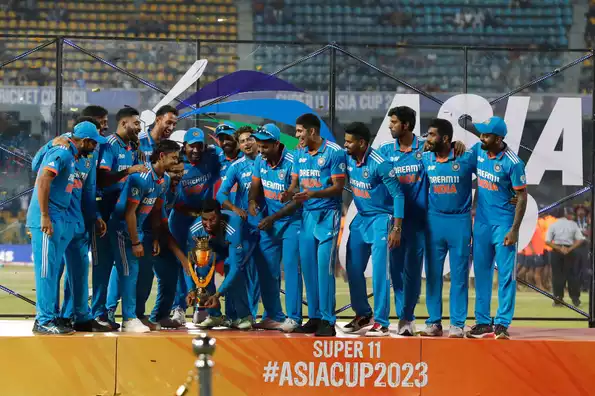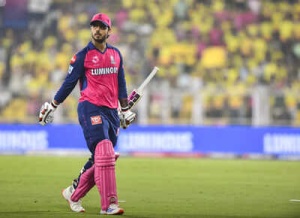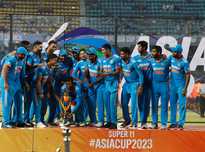The Asia Cup may be on track after a period of uncertainty. Despite lingering tensions between India and Pakistan, there's a growing sense of optimism that the continental championship will proceed.

While a definitive decision is still pending, indications suggest that a formal announcement could be made soon. The Asian Cricket Council (ACC) is reportedly aiming to release the schedule for the six-team tournament in early July, coinciding with its upcoming meeting.
If everything proceeds as planned, the ACC is looking at a mid-September start for the tournament. The T20 format competition is tentatively scheduled to commence on September 10. Participating teams alongside India and Pakistan will include Afghanistan, Sri Lanka, Bangladesh, and the UAE. Promotional activities for the event are already underway.
The UAE remains the leading candidate to host the Asia Cup. However, discussions are also considering a hybrid hosting model. While India is the designated host, previous decisions stipulate that when it's India or Pakistan's turn, the tournament should be held at a neutral venue.
The tournament's future was clouded following the terror attack in Pahalgam in April. Tensions further escalated after India's Operation Sindoor against Pakistan in May, raising concerns about the event's viability. Calls for India to boycott Pakistan in multilateral events also grew louder. Currently, India does not participate in bilateral cricket with Pakistan. There were even talks about discussing a potential India boycott of Pakistan in global events at the next ICC meeting.
However, recent developments in international cricket indicate a potential shift. The International Cricket Council (ICC) recently unveiled the schedules for two major global events: the Women's ODI World Cup in India and Sri Lanka, and the Women's T20 World Cup in England. Notably, India and Pakistan are scheduled to clash in both tournaments – on October 5 in Colombo and on June 14 at Edgbaston.
Although officials from the BCCI, ACC, and ICC have refrained from public comments on the matter, indications suggest that cricket ties between the two rivals will continue, at least in global events. These matches are significant revenue drivers for world cricket, benefiting the global cricketing ecosystem, not just Indian cricket. While India and the Board of Control for Cricket in India (BCCI) may not heavily rely on the revenue generated from these high-profile matches, governing bodies like the ICC, the ACC, and their member boards certainly do.
Newer articles
Older articles
 SA20 Auction: Teams Given Green Light to Retain Six Players Amidst Increased Salary Cap and New RTM Card
SA20 Auction: Teams Given Green Light to Retain Six Players Amidst Increased Salary Cap and New RTM Card
 India's Harshit Rana Released from Squad Before Second Test Against England in Birmingham
India's Harshit Rana Released from Squad Before Second Test Against England in Birmingham
 Udaipur: India's "City of Lakes" Beckons with Palaces and Timeless Romance
Udaipur: India's "City of Lakes" Beckons with Palaces and Timeless Romance
 Nitish Rana Poised for Delhi Comeback After Disappointing Uttar Pradesh Stint
Nitish Rana Poised for Delhi Comeback After Disappointing Uttar Pradesh Stint
 Former Selector Blasts India's Fielding Blunders After Test Loss to England
Former Selector Blasts India's Fielding Blunders After Test Loss to England
 Anushka Sharma Faces Ageist Criticism at Wimbledon, Fans Launch Online Defense
Anushka Sharma Faces Ageist Criticism at Wimbledon, Fans Launch Online Defense
 Asia Cup 2025: ACC Eyes Mid-September Start Date Amid Easing Tensions
Asia Cup 2025: ACC Eyes Mid-September Start Date Amid Easing Tensions
 Gambhir Defends India's Tailenders After Headingley Collapse, Cites Dropped Catches as Key Factor
Gambhir Defends India's Tailenders After Headingley Collapse, Cites Dropped Catches as Key Factor
 Gavaskar Calls for Kuldeep Yadav's Inclusion, Questions Bumrah's Fitness Ahead of Second Test Against England
Gavaskar Calls for Kuldeep Yadav's Inclusion, Questions Bumrah's Fitness Ahead of Second Test Against England
 Green tea vs lemon water for glowing skin: Myths, benefits, and expert-backed skincare secrets
Green tea vs lemon water for glowing skin: Myths, benefits, and expert-backed skincare secrets